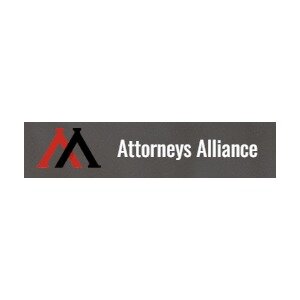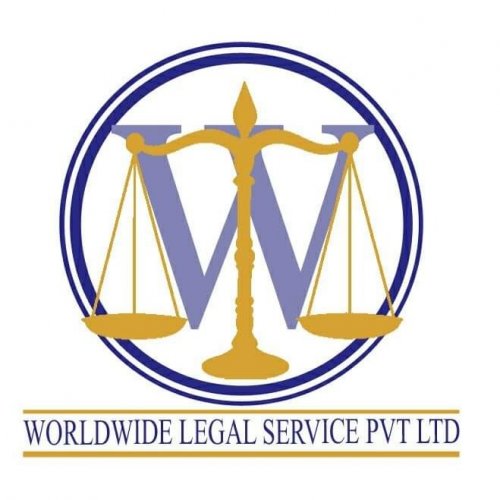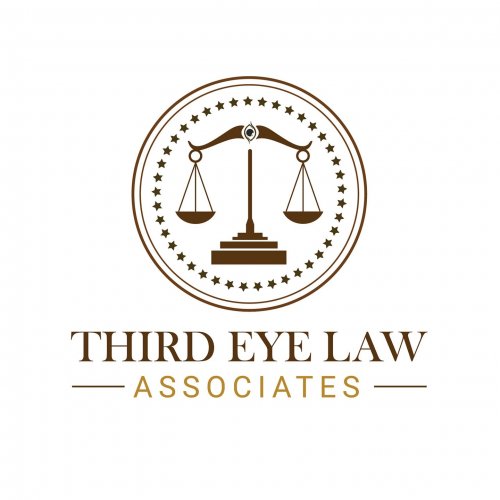Best Financial Services Regulation Lawyers in Kathmandu
Share your needs with us, get contacted by law firms.
Free. Takes 2 min.
List of the best lawyers in Kathmandu, Nepal
About Financial Services Regulation Law in Kathmandu, Nepal
Financial Services Regulation in Kathmandu, Nepal is governed by a framework of legislation and policies aimed at maintaining the integrity and stability of financial markets, protecting consumers, and ensuring the competitiveness of the financial services sector. The regulatory landscape is primarily shaped by the Nepal Rastra Bank (NRB), which serves as the central bank of Nepal. The NRB's directives, along with various acts and regulatory bodies, work collectively to oversee banking, insurance, securities, and other financial services. The objective is to foster a robust economic environment while safeguarding stakeholders' interests.
Why You May Need a Lawyer
Engaging a lawyer specializing in Financial Services Regulation may be necessary in several situations, such as:
- Starting a financial institution, where understanding compliance and regulatory requirements is crucial.
- Handling mergers and acquisitions involving financial entities.
- Dealing with regulatory compliance auditing, assessments, or investigations by the NRB or other authorities.
- Facing disputes with regulatory bodies or navigating complex legal changes affecting financial services.
- Protecting consumer rights in financial transactions or resolving conflicts with financial service providers.
Local Laws Overview
The financial services sector in Kathmandu is primarily regulated by these key legal frameworks:
- The Nepal Rastra Bank Act, 2002: Establishes the NRB as the principal regulator of banks and financial institutions, providing guidelines on their operation and management.
- Bank and Financial Institutions Act (BAFIA), 2017: Governs the licensing and function of banks and financial institutions, ensuring sound and healthy financial practices.
- Securities Act, 2007: Regulates transactions in securities, including the roles and duties of the Securities Board of Nepal (SEBON).
- Insurance Act, 2017: Outlines the regulation of insurance companies and insurance activities within the country.
- Foreign Exchange (Regulation) Act, 1962: Provides regulations for foreign exchange transactions, a vital aspect for businesses engaged internationally.
Frequently Asked Questions
What is the primary regulator of financial services in Nepal?
The Nepal Rastra Bank (NRB) is the primary regulator of financial services in Nepal, overseeing bank and financial institution operations and compliance.
What licensing is required to start a financial institution in Kathmandu?
You need to obtain a license from the NRB. This process involves meeting capital requirements, providing necessary documentation, and adhering to regulatory guidelines.
Are there specific laws governing electronic financial transactions in Nepal?
Yes, electronic financial transactions are governed by the Payment and Settlement Act, 2019, which includes provisions for electronic payments and digital banking channels.
What should a consumer do if they experience issues with a bank in Kathmandu?
Consumers can file a complaint with the concerned financial institution. If unresolved, they may escalate the issue to the NRB’s Grievance Handling Unit.
How does one register a securities firm in Nepal?
Securities firms need to register with the Securities Board of Nepal (SEBON), meeting criteria such as financial viability, professional expertise, and ethical standards.
What are the penalties for non-compliance with financial regulations?
Penalties range from fines and reprimands to revocation of licenses or certifications, depending on the severity of non-compliance.
Can foreign nationals own shares in Nepalese financial institutions?
Yes, but it is subject to specific conditions and limits as dictated by the NRB and other regulatory bodies.
Are there any legal requirements for anti-money laundering measures?
Yes, financial institutions must adhere to the Anti-Money Laundering Act, 2008, which mandates reporting, monitoring, and verification processes.
How are insurance companies regulated in Nepal?
The Insurance Board of Nepal oversees insurance companies, ensuring they comply with the Insurance Act and related policies.
What framework supports the resolution of financial disputes?
Disputes can be resolved through mediation, arbitration, or court proceedings, depending on the nature and complexity of the issue.
Additional Resources
Here are some resources and organizations that can be helpful:
- Nepal Rastra Bank (NRB): Central authority for banking and financial regulation.
- Securities Board of Nepal (SEBON): Regulator for securities and stock market activities.
- Insurance Board of Nepal (IB): Oversees insurance sector regulations.
- Central Depository System and Clearing Limited (CDSC): Manages securities depository and clearing services.
- Legal Aid Centers: Offer free or low-cost legal assistance and advice in financial legal matters.
Next Steps
If you seek legal assistance in Financial Services Regulation, consider the following steps:
- Identify your specific legal needs and gather all relevant documents.
- Search for and consult with specialized financial services regulation lawyers in Kathmandu.
- Evaluate lawyer credentials and experience before choosing one to represent you.
- Discuss your case extensively and understand the legal strategy and potential outcomes.
- Ensure all agreements with your lawyer are documented clearly, detailing fees, services, and expected timelines.
Lawzana helps you find the best lawyers and law firms in Kathmandu through a curated and pre-screened list of qualified legal professionals. Our platform offers rankings and detailed profiles of attorneys and law firms, allowing you to compare based on practice areas, including Financial Services Regulation, experience, and client feedback.
Each profile includes a description of the firm's areas of practice, client reviews, team members and partners, year of establishment, spoken languages, office locations, contact information, social media presence, and any published articles or resources. Most firms on our platform speak English and are experienced in both local and international legal matters.
Get a quote from top-rated law firms in Kathmandu, Nepal — quickly, securely, and without unnecessary hassle.
Disclaimer:
The information provided on this page is for general informational purposes only and does not constitute legal advice. While we strive to ensure the accuracy and relevance of the content, legal information may change over time, and interpretations of the law can vary. You should always consult with a qualified legal professional for advice specific to your situation.
We disclaim all liability for actions taken or not taken based on the content of this page. If you believe any information is incorrect or outdated, please contact us, and we will review and update it where appropriate.

















